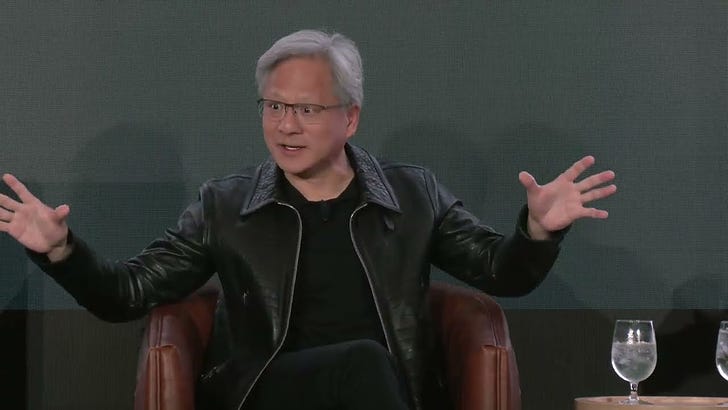Principles from Jensen Huang, Founder of NVIDIA
Embrace the Grind: Why Low Expectations Can Fuel High Achievement
Estimated reading time (5 minutes)
Happy Friday, everyone.
On Principles Friday, I share one principle that can help you in your life or business, one thought-provoking question, and one call to action toward that principle.
Principle of the Week
"People with very high expectations have very low resilience."—Jensen Huang, Founder of NVIDIA
This week, we delve into the wisdom of Jensen Huang, CEO of NVIDIA, a leader renowned for his innovative spirit and bold leadership. Huang, with a net worth estimated at a staggering $77.6 billion, has steered NVIDIA to become one of the world's most valuable companies, valued at over $2 trillion. But his success story isn't built solely on "aiming high." Huang offers a surprising counterpoint to the usual mantra: "People with very high expectations have very low resilience."
Huang argues that those with sky-high expectations often falter when faced with setbacks. They haven't built the resilience – the mental fortitude to bounce back from challenges – needed to navigate the inevitable bumps in the road to success.
Huang himself experienced this firsthand when NVIDIA, then a young company, nearly went bankrupt in 1996. This forced them to adapt, leading them to develop a new chip architecture that ultimately became a major success. This experience taught him, and his company, valuable lessons about reading the market and adapting to changing demands.
Huang suggests fostering a "tolerance for failure" within your approach. This doesn't mean giving up easily; it means accepting that setbacks are a natural part of the innovation process. By being prepared for challenges, you're less likely to be discouraged when they arise.
Small ask: 👉 If you enjoy reading this post, feel free to share it with friends! Or feel free to click the ❤️ button on this post so more people can discover it on Substack 🙏
Question to Ponder
What is your “tolerance for failure” when it comes to your career?
Call to Action
Building resilience is a process, not a destination. Following Jensen Huang's philosophy of embracing challenges, let's explore a science-backed framework to cultivate resilience. This framework draws on research in positive psychology and translates it into actionable steps for you.
1. Reframe Your Mindset: Practice cognitive reframing. Instead of "This is a disaster," view setbacks as temporary challenges: "This is an obstacle, but I can find a way around it." Indra Nooyi, former CEO of PepsiCo, is known for her unwavering optimism. When faced with production issues, she'd encourage her team to see them as opportunities for innovation: "We don't have problems; we have opportunities to improve."
2. Cultivate Gratitude: Regularly acknowledge the good things in your life, both personal and professional. Doug Conant, former CEO of Campbell Soup, implemented a "gratitude walk" within his company. During these walks, employees shared things they were grateful for, fostering a positive and supportive team environment.
3. Build Social Support: Nurture your relationships with supportive colleagues, mentors, and friends. Mary Barra, CEO of General Motors, emphasizes the importance of mentorship. She has a network of advisors and mentors who have provided her with invaluable guidance throughout her career.
4. Embrace Continuous Learning: Seek out new knowledge and skills to enhance your problem-solving abilities. Oprah Winfrey is a prime example of lifelong learning. She credits her success to a constant hunger for knowledge and a willingness to learn from others.
5. Celebrate Small Wins: This reinforces positive behaviors and keeps you motivated. Howard Schultz, former CEO of Starbucks, implemented a recognition program that celebrated both individual and team achievements. This kept employees engaged and motivated.
Video of the Week
Greatness is not intelligence. Greatness comes from character. And character isn’t formed out of smart people, it’s formed out of people who suffered.
If you want to learn more principles, I interview founders on my podcast, The First 100, where they share how they acquired their first 100 paying customers. This week:
Episode 142 - The First 100 with Ron Gidron, Co-founder of xtype.io
Episode 143 - The First 100 with Erik Allebest, the Co-founder and CEO of Chess.com
And that’s a wrap for now!
Thank you for giving your attention and checking this edition out.
If you enjoyed this edition, it would MEAN A LOT to me if you could take a few seconds and help me by sharing this article with your friends.
If you are not a subscriber, sign up and join others who receive it directly in their inbox weekly.



